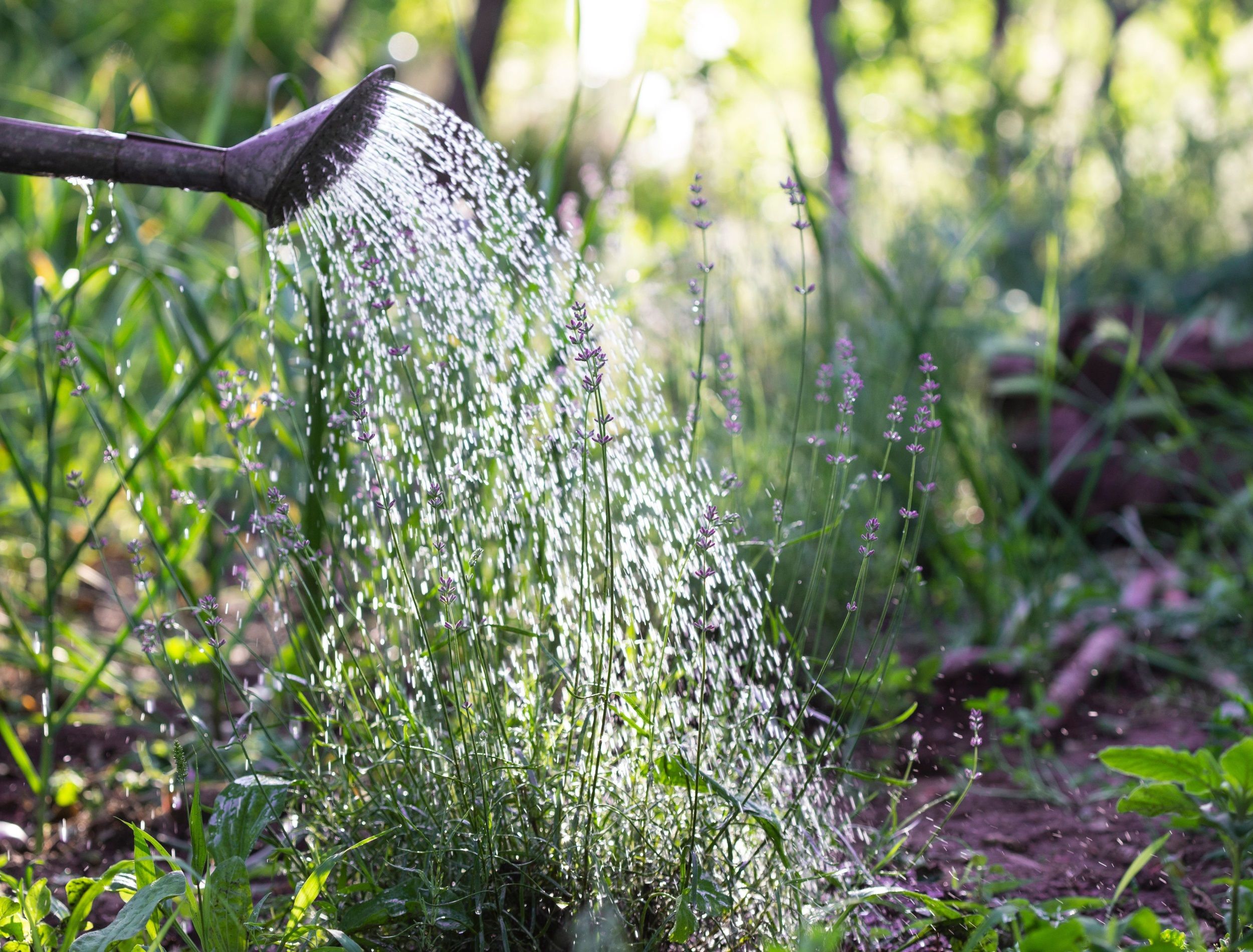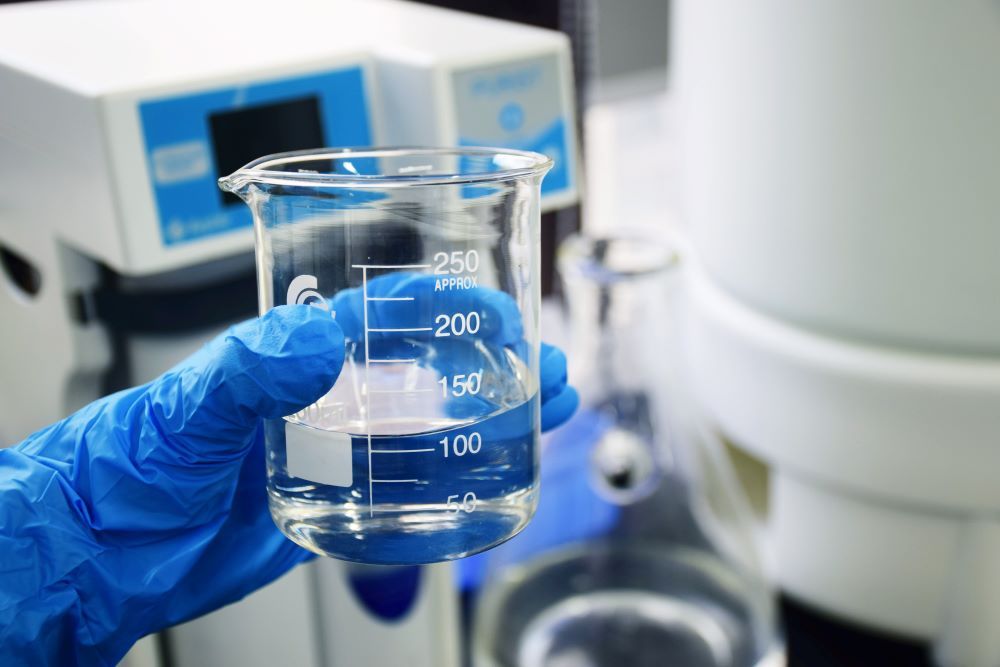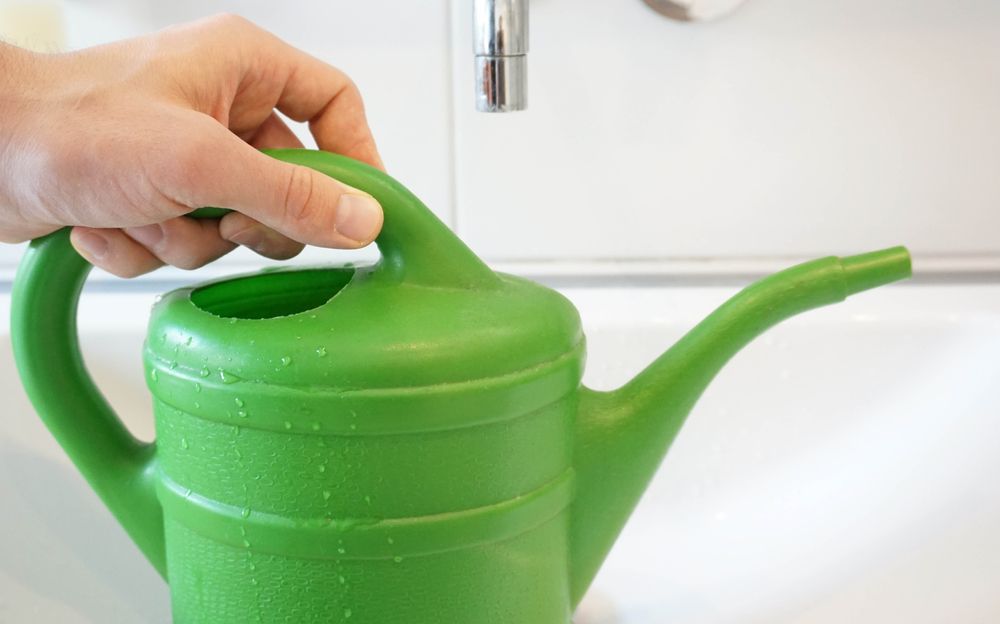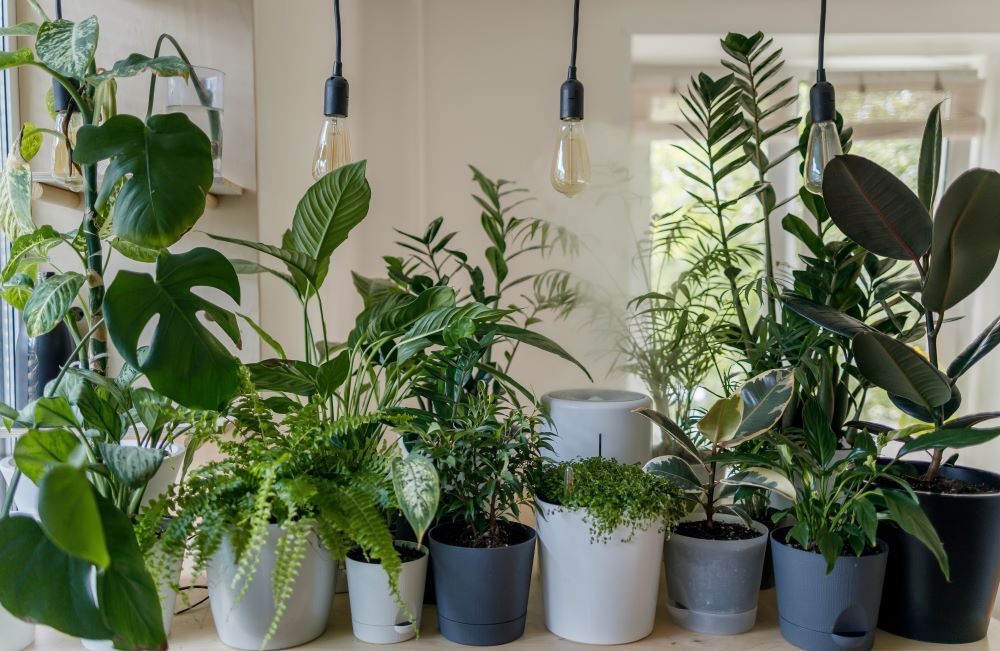We all know watering is a standard plant care practice, but the type of water that leads to optimal plant health might be a source of confusion.
It’s time to clear up the differences between distilled water and tap water, and find out if distilled water is the better option.
WHAT IS DISTILLED WATER?
Image credits: RephiLe water via Unsplash
Distilled water comes from a scientific process that mimics the natural water cycle—and what’s left is a type of water that’s free of 99.9 percent of impurities. Those impurities include bacteria, dissolved solids, herbicides, pesticides, and soluble minerals that create hard water (like magnesium and calcium).
To create distilled water, impure water is put through a system where it’s first boiled. The resulting steam is collected as it rises and is fed to a separate container where it cools down, returning to a liquid state. The cooled steam, once again water, is then bottled and sold as distilled water. The impurities are left behind when the vapor rose as the water boiled.
DISTILLED WATER VS. TAP WATER
Image credits: Romain Briaux via Unsplash
Distilled water and tap water are both treated water, but the methods are vastly unique, leading to different levels of purity. Tap water is generally treated with chlorine, a chemical compound that’s beneficial for removing microbes from water.
Public water also tends to contain fluoride in an effort to prevent tooth decay. It can carry other minerals, such as sodium, a dissolved component that people lose when they sweat. Tap water can also be sourced from wells and is therefore untreated.
TAP WATER: GOOD OR BAD?
Image credits: ThePhotoFab via Shutterstock
The quality and purity of tap water depends on the government in charge of public water sources and the environment of the region where public water is found. Distilled water, however, is labeled as such since it is always sourced via the same process of boiling and collecting the purified steam. You can expect the same quality out of all bottled distilled water, but the same can’t be said of municipal tap water.
There are some chemicals and minerals found in tap water that can hurt a number of plants in the long run, which aren’t found in distilled water. These chemicals and minerals include chlorine, fluoride, and sodium.
Chlorine, though it’s usually not harmful to plants, can be removed by allowing tap water to sit for a day or two. High levels of chlorine can potentially lead to brown leaf tips.
Fluoride can also cause brown tips as well as brown spots, however, only certain plants are sensitive to fluoride. These fluoride sensitive plants are commonly found in houseplant collections. Many types of dracaena, varieties of palm, Boston ferns, asparagus ferns, prayer plants, peace lilies, and spider plants are all sensitive to fluoride.
Sodium on the other hand may cause a number of plants to experience salt burn over time.
With that said, tap water is safe to drink, as is distilled water. Distilled water, though, contains none of the minerals the human body needs to stay healthy. And, it's often cited as tasteless. Regardless, distilled water may be the only option in regions with low-quality public water. By sticking with the safe option, you can side-step a lot of grief.
IS DISTILLED WATER THE ANSWER?
Image credits: vadim kaipov via Unsplash
Now to the question we’ve all been waiting for, is distilled water good for plants? Well, the answer is a bit more complicated than yes or no. When it comes to plants, watering them with distilled water is neither good nor bad.
What makes distilled water okay for plants is that it’s pure—it contains none of the components that may have an adverse effect on plants. If you’re unsure what’s in the local tap water, test it! Need to know what compounds specific plants in your collection need to avoid? Offering distilled water can eliminate the guessing game.
However, using distilled water is not the foolproof plant care strategy you may think it is.
As previously noted, distilled water is free from all impurities including minerals. Plants, like any other living thing, require nutrients in the form of minerals to flourish. Every plant relies on these elements to survive and grow: nitrogen, potassium, phosphorus, magnesium, calcium, sulfur, iron, manganese, copper, zinc, boron, chlorine, molybdenum, and nickel. Particular plants may need more or less of a certain element to progress so always do your research!
If most plants are given nothing but distilled water, or another pure form of water like RO (reverse osmosis) water over an extended period of time, they may suffer more than if they were given ordinary tap water. Most plants that are watered like this need an appropriate fertilizer to supplement the missing minerals. Tap water, chemically treated or not, may have many of those necessary nutrients already mixed in.
That’s not to say tap water is a suitable choice for every plant, though. Some plants, like carnivorous plants, live exclusively off forms of pure water like RO water or rainwater; Tap water would be their demise. You may also want to avoid tap water if you have a highly fluoride intolerant plant like a prayer plant or a spider plant.
WATER, WATER, COME OUR WAY
The true answer to the question of distilled water and plants is that it depends on the plant! Most varieties won’t care if you provide tap water or distilled water - They just need water. Other plants are fussier.
Regardless of water type, you should feed plants regularly to ensure they never lack essential minerals, unless specified otherwise. Would you still choose distilled over tap water? Comment below!





